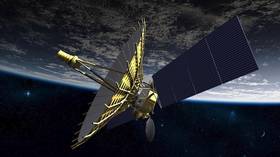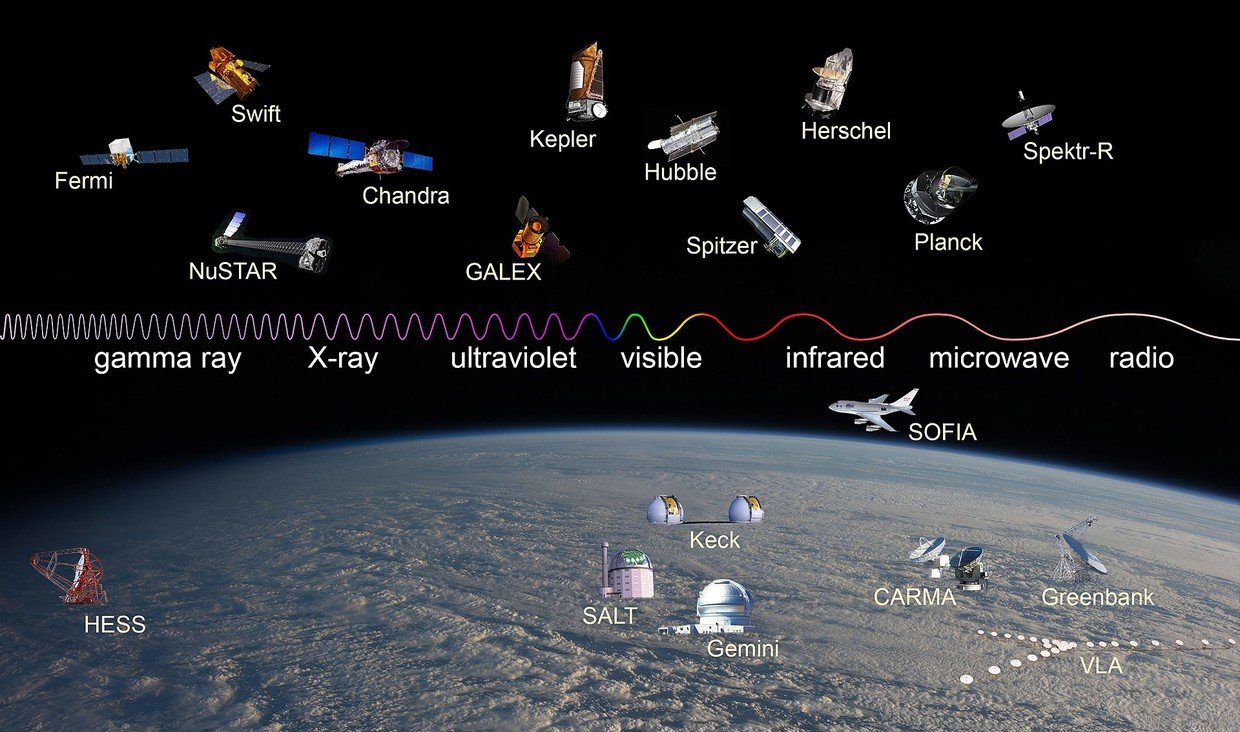Russia loses control over its ONLY ‘Hubble-like’ telescope, but photos are still coming

Russia has lost control over its scientific space satellite, Spektr-R, which has one of the largest space telescopes ever sent into orbit. Ground control said it is “still alive,” however, and continues to send photos from space.
It’s been several days since Spektr-R, also known as RadioAstron, stopped responding to commands from the ground in the middle of its space flight, Russian scientists said. Last Thursday, communication between mission control and the space telescope failed, and several other attempts to revive the radio link have proven unsuccessful.
Incredibly, the Spektr-R kept sending data back to Earth, however, which added a bit of intrigue to the incident. “There is still hope – the satellite is indeed alive,” Yuri Kovalev, head of RadioAstron program, wrote on Facebook.

Dubbed the 'Russian Hubble' by the media, Spektr-R is part of a small club of scientific instruments that enjoy the luxury of observing deep space without the interference of the Earth’s atmosphere. Unlike its predecessor from the 90s, however, the Russian telescope detects radio frequencies, not visible light. While its output may not be immediately stunning to the public, it is crucial for cutting-edge scientific discoveries, enabling researchers to study objects not visible or as clear to the 'naked eye,' such as black holes, neutron stars, pulsars and astrophysical masers. Spektr-R excelled at such observations, breaking several records in angular resolution during its mission.
Launched in 2011 from Baikonur Cosmodrome to make astrophysical observations of space objects within and beyond our galaxy, the Spektr was expected to work until 2016, but it managed to continue its mission.
Nevertheless, Russia is now left with no space telescopes available as it is unclear whether the technical problems can be fixed. The next replacement, the Spektr-M, will only become operational in the mid-2020s. The newest satellite is expected to be sent into space beyond the orbit of the moon.
Fitted with a 10-meter-wide mirror antenna, the Spektr-R was able to provide extremely high-definition data from the depth of the universe, while its electronic systems allowed it to transmit around 100 gigabytes of information per day.
The Spektr-R is not the first space telescope to suffer from technical issues recently. The iconic Hubble recently lost its main instrument, Wide Field Camera 3, due to an unspecified hardware problem.
14 января станции приема научных данных в США удалось зафиксировать излучение несущей частоты отдельного передатчика аппарата «Спектр-Р», что косвенно подтверждает информацию о том, что бортовые системы в целом работают в соответствии с заложенной в них логикой. pic.twitter.com/EP3IICuwLU
— РОСКОСМОС (@roscosmos) January 14, 2019
NASA engineers are unlikely to fix the satellite’s troubles immediately due to the government shutdown.
The Spektr-R is Russia’s first scientific project aimed at fundamental research in outer space. However, space exploration is reportedly facing yet another setback. According to a report by Kommersant daily, police are investigating suspected embezzlement in relation to the project.
Also on rt.com ‘Russian Hubble’ observatory project bogged in embezzlement probe – reportThe assembly of the telescope is being done by the NPO Lavochkin, a state-owned Russian space developer. Investigators believe that some of its employees embezzled around $425,000 by signing a fraudulent contract with a subcontractor.
Like this story? Share it with a friend!














